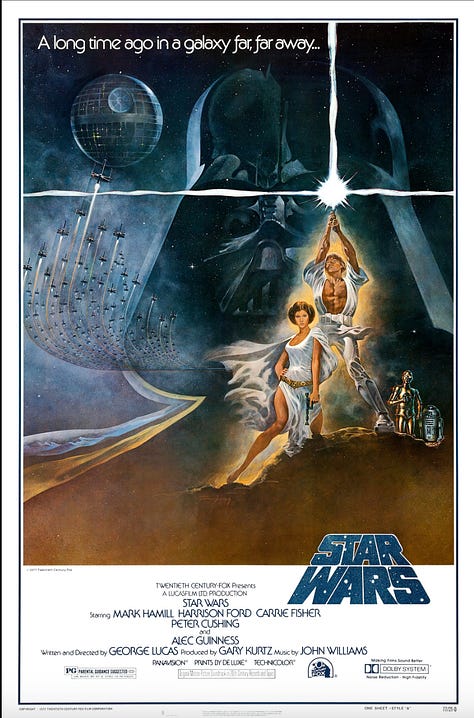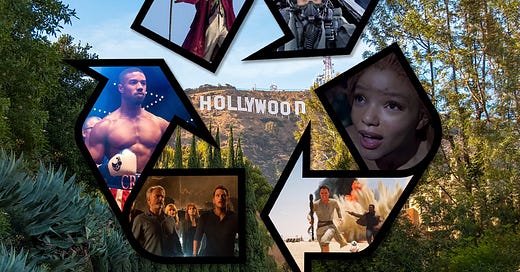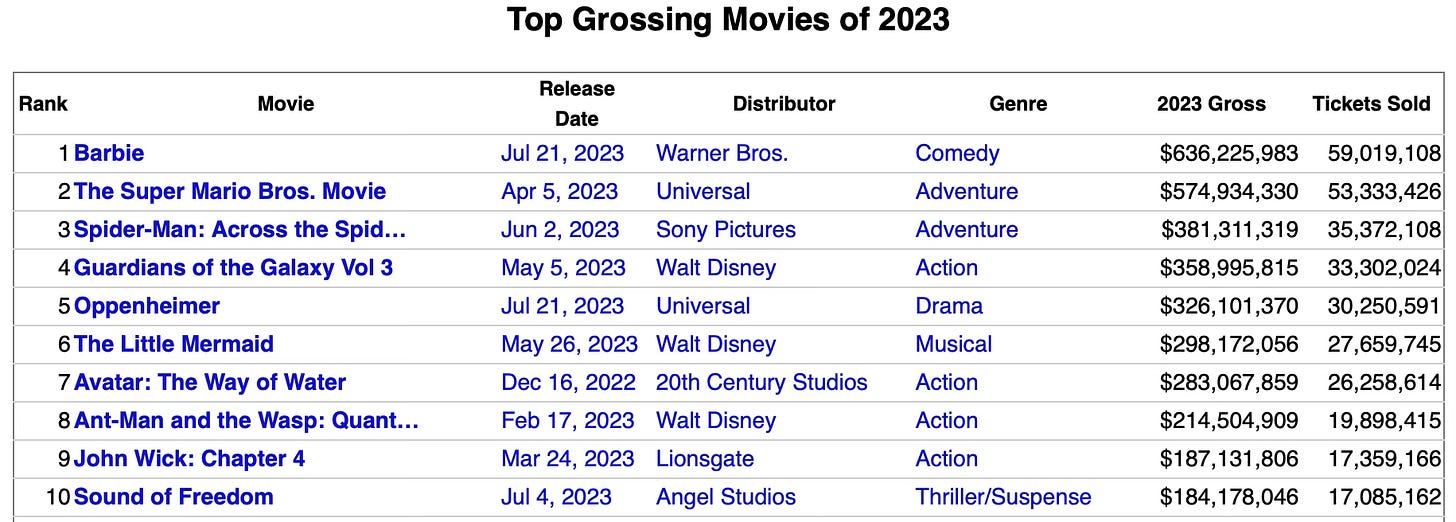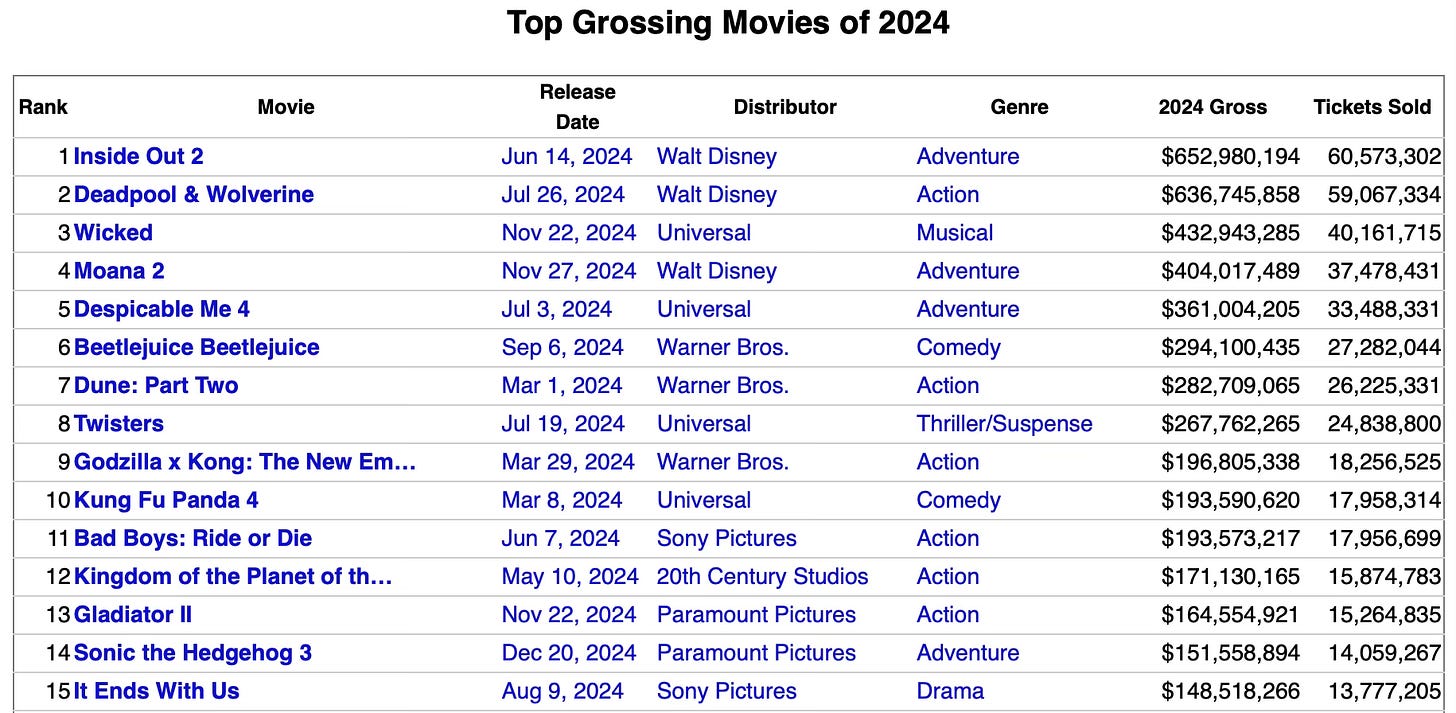There are two constants in life: death and Hollywood recycling the same five ideas like a broke college student living off ramen. Every year, we get another reboot, another remake, another nostalgia-bait cash grab that nobody asked for—but somehow, people still pay to see it.
Why? Because Hollywood has figured out that nostalgia is more addictive than nicotine and twice as profitable. The numbers don’t lie: the highest-grossing films of the past decade are almost exclusively sequels, remakes, or franchises that have been milked harder than a Midwestern dairy farm.
Hollywood’s Business Model: If It Worked Once, Do It Again (and Again, and Again…)
Once upon a time, studios took risks. They greenlit wild, original stories that changed cinema forever—Star Wars, Jurassic Park, The Matrix. But then something happened: they realized they could just keep selling us different variations of the same thing, and we'd eat it up like a limited-edition McDonald’s item.



Consider this: in 2023, eight of the top ten highest-grossing films in north America America were either sequels, remakes, or part of a franchise. In 2024, this trend became even more pronounced—every single one of the top 14 films fell into those categories. It wasn’t until the 15th spot that an "original" movie appeared, and even that—It Ends With Us—was an adaptation of a bestselling book rather than a wholly original concept. And it’s been this way for years. The last time an original movie (not based on existing IP) topped the global box office was Avatar in 2009. That’s not just a trend; that’s an industry-wide addiction to safety.
The Economics of Nostalgia: Why Old is the New New
Let’s break this down with some hard numbers:
Since 2010, Disney's live-action adaptations and remakes of its animated classics have raked in over $10 billion at the box office. Yes, billion—with a "B." That’s more than the GDP of some small Caribbean nations, all from repackaging old stories with glossier CGI.
The Lion King (2019), a shot-for-shot remake that sucked the soul out of the original, made $1.7 billion worldwide. Meanwhile, fresh, original films like The Last Duel flopped harder ($30.6 million) than a fish out of water.
The Marvel Cinematic Universe, spanning 35 films, has amassed over $31 billion worldwide—making it arguably the biggest franchise on the planet. For perspective, every Best Picture winner from the last 30 years combined has only grossed about $10.6 billion. It’s not even close. Some of the highest-grossing winners include Oppenheimer ($976.8 million), The Lord of the Rings: The Return of the King ($1.15 billion), Titanic ($2.26 billion), and Forrest Gump ($678.2 million).
Hollywood isn’t in the business of making movies; it’s in the business of printing money. And the best way to do that is to minimize risk. Making an original movie is a gamble; remaking Aladdin with Will Smith as a blue genie is a guaranteed payday.
The Psychology Behind It: Why We Keep Falling for the Same Trick
It’s easy to blame studios, but let’s be real—we’re the ones buying tickets. And there’s a reason for that: nostalgia is a psychological goldmine. Studies show that people are drawn to familiar stories because they provide comfort. We associate them with childhood, simpler times, and fewer responsibilities (back when our biggest problem was deciding between watching Growing Pains or Boy Meets World).
Marketers know this. They don’t even have to try anymore. Just slap a familiar name on something (The Little Mermaid, Ghostbusters, Indiana Jones 5), and we’ll show up like Pavlov’s dog hearing a bell. Even when we know it’s going to be bad. Even when we swear we’re done falling for it. (Looks at The Lion King remake.)
Originals vs. Remakes: The Harsh Reality
So, what happens when Hollywood tries something original? Well, unless it’s from a well-established director (Christopher Nolan, Quentin Tarantino, Jordan Peele), the odds of it succeeding are about the same as your uncle winning the lottery and finally paying you back.
Let’s compare:
Top Gun: Maverick (2022) - A sequel to a 1986 movie. Box office: $1.45 billion.
Barbie (2023) - Based on a toy from the 1950s, rebranded with a fresh, subversive twist. Box office: $1.44 billion.
Everything Everywhere All at Once (2022) - 100% original. Won Best Picture. Box office: $111 million.
The Fabelmans (2022) - Spielberg’s deeply personal original film. Box office: $43 million. Yikes.
It’s not that people don’t want originality. It’s just that studios don’t want to risk spending $200 million on something that doesn’t have a built-in audience. Nostalgia sells, originality gambles.
Can Hollywood Break the Cycle? (Spoiler: Probably Not)
The only way Hollywood stops milking nostalgia is if we stop showing up for it. But that’s about as likely as Fast & Furious calling it quits after 11 movies. (Spoiler: Fast & Furious 12 is already in development.)
There are bright spots. Barbie proved that you can take a well-known IP and do something bold with it. Everything Everywhere All at Once showed that originality can still break through with the right mix of chaos and heart. And Christopher Nolan will always get a blank check to do whatever he wants because he’s basically Hollywood’s golden child.
But for the most part? Expect more of the same. More remakes. More reboots. More sequels.
And yes, we’ll probably keep watching.
Final Thought: Is Nostalgia Ruining Cinema?
Not necessarily. Nostalgia-driven films aren’t bad by default—some of them (Mad Max: Fury Road, Blade Runner 2049) are masterpieces. The problem is that it’s become Hollywood’s default setting. When originality is the exception rather than the rule, cinema turns into a theme park ride—fun, predictable, and designed to separate you from your money.
So, what’s the solution? Support original films when they come out. Skip the soulless cash grabs. Demand better. Otherwise, brace yourself for The Office reboot, Harry Potter reboot, Lord of the Rings reboot, Twilight reboot, and More.
Because if history has taught us anything, it’s that Hollywood will never stop milking a good thing—especially when we keep handing them the bucket






